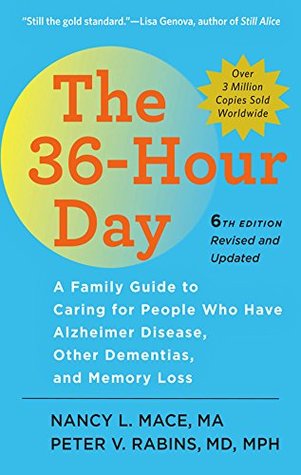More on this book
Community
Kindle Notes & Highlights
People who have dementia often lose the ability to entertain themselves.
When the person who has dementia is unable to continue his usual activities, you need to help him find things to do that are important to him and still within his abilities.
For example, folding and refolding towels might have meaning for some people but not for others.
Families often ask whether they should “spoil” the person by meeting his demands or whether they should try to “teach” him to behave differently. The best course is often neither of these strategies. Because he cannot control his behavior, you are not “spoiling” him, but it may be impossible for you to meet endless demands. Because the person has limited ability, if any, to learn, you cannot teach him, and scolding may precipitate catastrophic reactions.
If a person cannot remember when he last took a bath, he may be insulted when he is told to bathe. This is understandable.
Take the path of least difficulty. Avoid arguments and accept whatever compromise is safe and works.
It is important to keep people who have dementia as active as possible. They need to move around
and to use their minds and bodies as much as possible.
Try not to interpret anger in the same way as you would if it came from a well person. Anger from a person who has dementia is often exaggerated or misdirected. The person may not really be angry at you at all.
If the person is drinking caffeinated
beverages (coffee, cola, tea), switching to noncaffeinated drinks might help.
Be informed. You can help most if you understand both the disease and what the caregiver in your family is going through.
Take on tasks the person who has dementia used to do. Balance the checkbook, take the car to the mechanic, bring over a home-cooked meal.
Clearly explain (probably several times) to the child that his parent or grandparent has a sickness and cannot help what he does but that the child can control his behavior and is expected to do so. Tell the child what to say to his friends.
However, just knowing that unpleasant behavior is the result of the disease and that the person cannot control what she is doing can be reassuring.
Repeating the same conversations or activities may get boring, but keep in mind that many people who have dementia have such severe memory impairment that they do not remember what they did five or ten minutes ago. Repetition of enjoyed activities may give them pleasure, even if it is frustrating for you.
High blood pressure in mid-life, high cholesterol, and obesity are risk factors for developing Alzheimer disease and vascular dementia.
To reduce the risk of heart attack, stroke, and dementia, the CDC recommends thirty minutes of physical exercise five days a week for everyone who can do so
Studies comparing people who do and do not develop dementia have also shown that those who do more socially are less likely to develop dementia.
Diabetes is a well-established risk factor for developing Alzheimer disease and vascular dementia. The mechanisms by which this occurs are under intense study. It is not known whether better control of blood sugar will prevent dementia.


